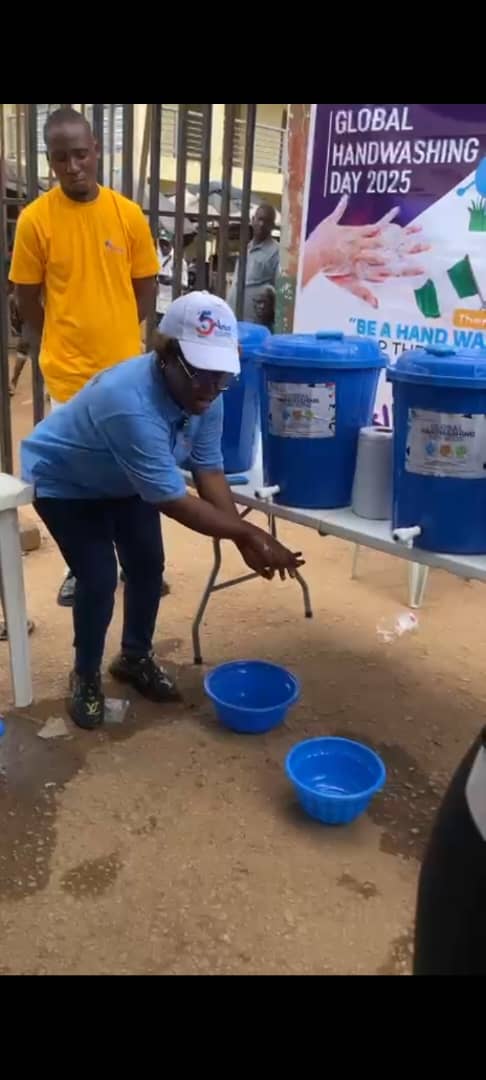By Folasade Akpan
5AMAS Foundation, a Non-Governmental Organisation (NGO), has stressed the importance of proper handwashing and hygiene to prevent the spread of infectious diseases within Nigerian communities and public spaces.
The foundation made this known on Wednesday during a sensitisation outreach at Jabi Central Motor Park, Abuja, commemorating the 2025 Global Handwashing Day themed: “Clean Hands Are Within Reach,” aimed at promoting hygiene awareness.
The News Agency of Nigeria (NAN) reports that Oct. 15 is marked as Global Handwashing Day to increase awareness about handwashing with soap as a simple, affordable, and effective disease prevention method.
Ms Blessing Geoffrey, the Water, Sanitation and Hygiene (WASH) Consultant for 5AMAS Foundation, emphasised that handwashing with soap and water remained one of the most effective methods to prevent disease transmission.
She explained that handwashing represented more than just cleaning hands, but included food hygiene, menstrual hygiene, and overall personal hygiene, which collectively reduced health risks in public and private spaces.
Geoffrey said the Jabi Central Motor Park was strategically chosen because of its high traffic, hosting travellers, food vendors, and park users from different parts of the country on a daily basis.
“We came here to sensitise food vendors, commuters, and transport workers. Promoting hygiene in such a busy environment will significantly reduce exposure to preventable illnesses,” Geoffrey stated during the outreach event.
She noted that 5AMAS foundation installed handwashing facilities at the park, providing water, soap, and liquid handwash products made by the foundation to demonstrate proper hygiene techniques to the attendees.
“Our mission is to promote effective handwashing, not just rinsing hands, but proper, soap-based washing that truly removes germs and reduces the risk of common infections,” Geoffrey added.
Geoffrey further stressed that long-term behavioural change was essential to achieve clean communities, saying regular sensitisation and consistent follow-up were critical to instilling and maintaining hygiene habits across all age groups.
“Behavioural change is gradual and requires repetition. Using both media and community-level outreach is key to stopping open defecation and ensuring everyone understands the benefits of good hygiene,” she said.
She urged the government to engage private toilet operators in partnerships and ramp up public awareness campaigns to help realise open defecation-free environments, especially in underserved urban and rural communities.
According to her, the government should provide more public toilets and lead hygiene awareness drives. “Though change takes time, consistent communication and access to facilities can make a real impact.”
Participants expressed satisfaction with the training, saying the event improved their understanding of proper hygiene practices.
“They pledged to share the knowledge with others in their homes and workplaces.”
Mrs Talatu Danladi, a participant, said she discovered better ways to wash hands.
“We used to wash carelessly, but today I learnt how to do it properly. My hands feel truly clean.”
Similarly, Mr Isa Sule of the National Union of Road Transport Workers (NURTW) said the event changed his hygiene mindset.
“I’ve now learnt the correct method and why it’s important.
“Before, we just rinsed and ate. Now, with this knowledge, I understand the difference. My hands are cleaner, and I’ll encourage others around me to adopt proper hygiene too,” he added.
NAN reports that the event ended with a hands-on demonstration of proper handwashing techniques led by the 5AMAS Foundation, allowing participants to practise and engage directly with the instructors. (NAN)(www.nannews.ng)
Edited by Abiemwense Moru












